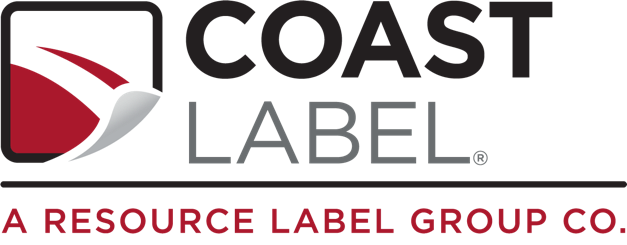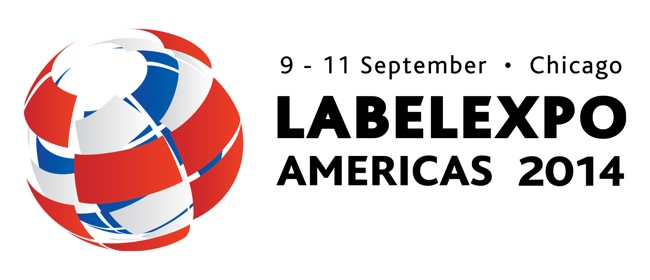Whether you’re in retail, manufacturing, or logistics, you know just how essential tracking labels are. In fact, you could say they’re the secret to efficient supply chain management. Today’s customer expects fast shipping and real-time updates on the status of their order, and tracking labels make this possible.
While tracking shipments might be what first comes to mind, tracking labels can be used in a variety of ways to increase efficiency and reduce errors. So how do you best use tracking labels? Read along to learn more about these simple yet mighty tools.
What Are Tracking Labels?
Tracking labels may seem simple, but they are a crucial component in the supply chain. These labels include information such as unique identifiers, 1D barcodes, 2D barcodes, or RFID tags. Tracking labels are used to track the location, status, and other details of an item as it moves throughout the supply chain.
Tracking labels are scanned at each checkpoint along the way to the end customer. They help with inventory management, order fulfillment, shipping and logistics, and traceability. Used in tandem with automated systems, tracking labels make your organization more efficient.
What Information Is Usually Included?
Tracking labels include information that identifies the item being tracked. The exact information needed will depend on the type of product, but some common elements found on a tracking label include:
- Barcode or 2D barcode: These encoded elements store data that can be scanned electronically for quick retrieval and processing.
- Product identification: Information that identifies the item, like the product name, description, model number, or SKU (Stock Keeping Unit).
- Serial number: A unique identifier for individual items that helps distinguish between identical products.
- Batch or lot number: Batch or lot numbers are used to track batches of products, which is important for quality control. In case of a recall, problem items can be identified and traced.
- Destination: The address where the product will be delivered.
- Return address: The address of the sender, in case the shipment needs to be returned.
- Carrier information: Details about the carrier responsible for transporting the goods.
- Tracking number: A unique number assigned to the shipment that allows for real-time tracking.
- Shipping date: The date when the product was shipped.
- Weight and dimensions: Information about the weight and size of the package.
Types of Tracking Labels
There are several different types of tracking labels used in the supply chain. The right type for your organization will depend on your specific needs. Here are some of the most common types of tracking labels:
- 1D barcode labels: These barcodes use a linear code, like UPC or EAN, to encode numeric or alphanumeric codes. Barcode labels can be scanned by an optical scanner and are used commonly in retail settings, warehouses, and shipping and logistics.
- 2D barcode labels: 2D barcodes like DataMatrix or QR codes can include much more information than a 1D barcode. These tracking labels can be scanned with a dedicated 2D barcode scanner or a smartphone.
- RFID tags: Rather than using a barcode to store information, RFID tags include a microchip that can be read by an RFID reader. RFID readers can often scan multiple tags from a distance, allowing for quick and accurate inventory tracking and management.
- Smart labels: These labels combine RFID technology with traditional printed labels for both visual and electronic tracking.
- Temperature-sensitive labels: Temperature-sensitive labels react to certain temperatures. They’re used to make sure that perishable goods stay within a safe temperature.
When Are They Typically Used?
Custom tracking labels are used across various industries to track products and assets, such as:
- Shipping and logistics: Tracking labels help monitor shipments and keep deliveries on time.
- Inventory management: Both barcode and RFID tracking labels are used for more accurate inventory counts and stock control.
- Asset tracking: Tracking labels are placed on company assets, like computers, electronics, or equipment, to prevent loss and theft.
- Manufacturing: Manufacturers use tracking labels on parts and materials to track them through different stages of production.
- Healthcare: The healthcare industry relies on tracking labels to track medical supplies, lab specimens, and pharmaceuticals.
Best Uses for Tracking Labels
- Accurate inventory counts: Tracking labels help your organization count inventory more precisely. When a label is scanned, the information can be automatically recorded in your inventory management system.
- Supply chain visibility: Using tracking labels from the place of origin to the end user increases transparency through the entire supply chain.
- Error reduction: Tracking labels can be used to reduce mistakes made in shipping, receiving, and order fulfillment, ensuring that the right product goes to the right place at the right time.
- Customer service: Customers appreciate real-time updates about their orders, which improves customer satisfaction.
- Recall management: In case of a recall, tracking labels can help you identify the specific products that are affected and trace the products to the end users.
LPN Labels for Improving Logistics
Custom Tracking Labels
If you need tracking labels, you can count on Coast Label. We specialize in creating custom labels to fit the specific needs of our customers. With our state-of-the-art equipment, we can customize tracking labels made just for you.
- Shape and size: Choose from standard shapes and sizes to something more unique.
- Company branding: Include your company logo and custom designs.
- Specific data fields: Choose from 1D barcodes, 2D barcodes, or RFID tags.
- Durable materials: We offer a variety of materials to fit your application, from waterproof to weatherproof and everything in between. We use only industrial-grade materials to create custom tracking labels that last.
- Security features: Choose tamper-evident features to increase the security of your assets or high-value products.
Why choose Coast Label? We work with you one-on-one to engineer tracking labels that will last. Contact us today for a proposal.

